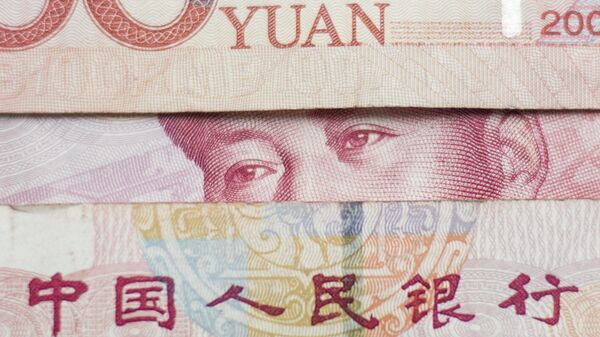Kristian Rouz — Mainland China's main economic planning authority is forecasting stable consumer prices in the second half of this year despite the escalating trade tensions with the US. The announcement comes amid Beijing's decision to impose retaliatory customs duties on $50 bln worth of US imports.
China's National Development and Reform Commission (NDRC) said trade tensions with the US won't have a significant impact on domestic consumer prices despite fears that stiffer tariffs could lift the price of some US-made goods in the Chinese market.
"The market, in general, thinks the macro environment is stable and that the market supply is sufficient," NDRC said in a statement. "The overall price level will continue to stabilize and it's unlikely that prices will rise significantly."
China's main imports from the US include agricultural goods, including soybeans and corn, as well as automobiles. Some observers point out the exchange in trade restrictions could lift food prices in China, which has struggled to feed its 1.4-billion population, but the government in Beijing points to possible increases in imports from third-party markets, such as Australia, New Zealand, and the EU.
China's reciprocal response to US tariffs on $50 bln in Chinese goods has stirred additional concern after US President Donald Trump requested another round of duties on $200 bln worth of Chinese trade. If these tariffs go into effect, Beijing might reciprocate again, and the higher duties could translate into the overall elevated prices on all imported goods within China.
READ MORE: China Has Leverage Amid Trade Row as US 'No Longer World's No 1' — Economists
"The initial economic impact is likely to be small but disruptive, given the international supply chain linkages that bring so many countries into the trading system," Prof. Stephen Roach of Yale University said.
China's yearly inflation rate slowed to 1.8 percent last month from its peak of 2.9 percent this past February. Overall, China's monetary policies are less dependent on the consumer prices index and other macro indicators, as state planners are looking more closely at price dynamics in the real estate market, as well as shadow banking when charting their policy course.
Food prices in China have recently remained stable as well, but experts have warned that China's massive livestock is excessively exposed to the imports of soybeans from the US. Subsequently, pork prices in China could increase due to higher input costs at its agricultural facilities.
While state planners in Beijing are expecting to replace some US imports with other sources, the huge volumes of bilateral US-Chinese trade suggest this might be a challenging task.
"In principle, there is still room for negotiation and we cannot rule out de-escalation in the coming weeks. But attitudes seem to be hardening," Louis Kuijs of Oxford Economics said.
The Chinese authorities are expecting loose monetary policies to support growth in the small and medium-sized enterprise (SME) sector, especially in the agricultural segment, including grain farming. This could potentially offset some of the negative effects of the ongoing trade tensions on domestic prices.
READ MORE: Mercedes-Benz Expects US-China Tit-for-Tat Tariff Spat to Hit Car Sales
Meanwhile, experts also point out that chances are quite high that the US and China implement further mutual trade restrictions. However, possible new tariffs and/or quotas would likely trigger a realignment in international supply chains, rather than severe disruptions, but some sound alarm over the prospects of global economic growth.
"Global growth can withstand a little bit of rhetoric and maybe a round of initial tariff action on both sides, but with the Chinese economy already slowing, the rising fiscal deficits in the US, and risks in emerging markets, there are some fragilities in the global economy," Matthew Goodman, former economic adviser to the Bush and Obama presidencies, said.
Rising global inflation is expected to benefit the economies already engaged in a cycle of monetary tightening, such as the US and the UK, while the majority of emerging markets have struggled in the recent years to support their GDP growth while trying to contain inflationary pressures.
China's response to this nascent challenge could possibly set a blueprint for other emerging markets in this new era of reciprocity in global trade.




